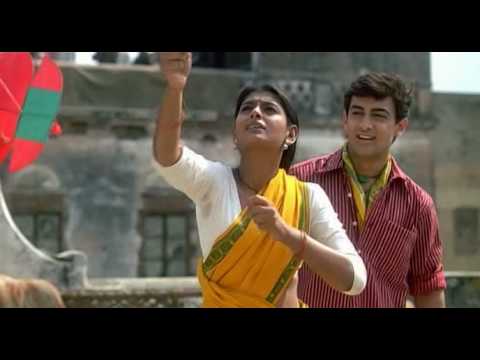Women’s rights, human rights, and pluralism are often a subject in developing democracies. Part of Bapsi Sidhwa’s intent in her book Cracking India was to tell the stories of women, which can be a formative part of the process. Cracking India illustrates what South Asian tolerance once was. We can question how it might evolve.
When she speaks, Bapsi Sidhwa’s language is crisp and descriptive, and it is not unlike her writing. Her words can evoke epochs of emotion through the novel Cracking India, describing times of conviviality and absurdity between a cast of various characters, or darkness and gloom, particularly through the violence of partition.
Indian director Deepa Mehta, who also produced Fire and Water, turned Cracking India into the award-winning film Earth. Perception was paramount when Mehta translated the words into visual imagery. Sometimes a creative tension arose as Mehta and Sidhwa imagined scenes differently, but understanding each other well, they managed to resolve their differences.
Perspective was also paramount. The story is about division, cracking the earth, from the lens of Lenny, who as a small Parsee child, is an outsider to the majority religious groups (Parsees are one of two groups of South Asian Zoroastrians). In day-to-day life, the vulnerable character’s presence might have seemed insignificant. But as the novel’s young narrator, she describes partition from a distinct vantage point while raising daunting issues – like pluralism and women’s development.
Lenny has polio and doesn’t go to school, but coming from an affluent family in Lahore, she is tended to by Ayah, her caregiver. Developing street smarts, she spends time in Queen’s park with a cast of characters from Muslim, Hindu, Christian, and Sikh backgrounds. She simply knows people by how they function for her; Ice Candy Man, for instance, sells popsicles.
Lenny’s innocence wanes as she realizes that the people around her are actually identified by their religion. Sher Singh is not just the zookeeper, he is a Sikh. Ice Candy Man is not just the vendor, he is Muslim. The essence of the novel, according to Bapsi, is of a Lahori child living in peaceful coexistence with diverse friends, and coming to the painful realization that India would be split:
“There is much disturbing talk. India is going to be broken. Can one break a country? And what happens if they break it where our house is? Or crack it further up on Warris Road?” (pg. 101)
One early visceral scene happens when Lenny is dining with her little brother, who steals her giblet, violating her sense of fair play. Luckily the conflict is resolved through intervention.
“Ayah carries me screaming into the kitchen and proceeds to splash my face at the sink. Imam Din pops a chicken heart into my mouth. Yousaf carries Adi back to the kitchen. Adi’s mouth is working. It too has had something popped into it. I wonder what? An uneasy truce is contemplated as we scrutinize each other’s ruminating mouths. A short while later when everyone is busy preparing dinner we slip unobserved beneath the dinner table, friends again.” (pg. 68)
The book later delves into viscerality as Lahore burns, villages are plundered, and children are orphaned. As the subcontinent plunges into chaos, groups are settling scores.
Some events progress more subtly. Individuals become devout in their rituals, whether because of soul-searching or because they are differentiating themselves through religion. For example, despite being a part of a morally deteriorating turn of events, Ice Candy Man develops an affinity for and becomes well-versed in Urdu poetry.
Another trend illustrated in the book is how an assault on women’s bodies was actually a symbolic assault on an entire tribe, village, cultural or religious circle. In one instance, a train arrives with dead Muslim bodies. Ice Candy Man has been waiting for days for his relatives and realizes his sisters are among the mutilated female corpses whose breasts have been cut off. Until then he wanted to maintain relationships with his Sikh friends, but after this incident the starts to harden and form a vendetta.
Women are victimized, yet the story points out how women assert themselves within realms of limited control. Lenny is often a very gullible victim of her Cousin’s sexual overtures – in some scenarios it takes her a minute, but she eventually realizes what is happening and resists.
Lenny’s mother is another female character who shows gumption. Despite having to use her wits to get money from her husband, she is on a mission to rescue women who have been kidnapped into sexual slavery. Perhaps she gains strength through helping other women.
Despite some female triumphs, the book ends on an open note, so a discussion can ensue. Many grow up identifying with their countries and social circles, and recognize the patriotism of those who witnessed partition. Yet coexistence was the norm at one time, and still is in some regions.
In the last years of her life, my grandmother once stated, ‘We used to say, ‘This is our faith and that is your faith’” (a paraphrase of a Qur’anic verse about tolerance that essentially means, to each his own).
One can ask, “What if partition never occurred?” But as it stands, the question might instead be: what kind of cooperation might be feasible in the future? Maybe South Asian countries can cooperatively distribute resources more effectively across borders and thereby reduce poverty. It wouldn’t be the first introduction of these ideas, but a wider and multidimensional dialogue about them could be beneficial.
Women’s rights, human rights, and pluralism are often a subject in developing democracies. Part of Bapsi Sidhwa’s intent was to tell the stories of women, which can be a formative part of the process. Cracking India illustrates what South Asian tolerance once was. We can question how it might evolve.
Saadia Chaudhry is a volunteer for Chai Time and has published opinion articles about Iraq and Afghanistan in The Sun-Sentinel.





